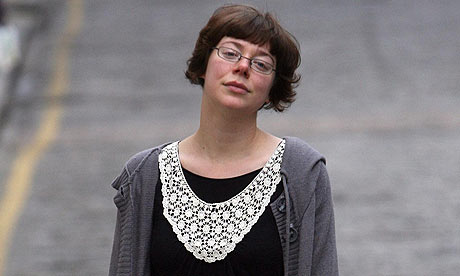
When was it that that TS Eliot became Britain's pre-eminent prize for poetry? It hasn't been around forever, though it now feels as if it has. It isn't without its peers - the Forward Prize is longer established and valuable in its own right. But as Andrew Motion has said, it is the TS Eliot that poets most want to win.
Part of it is the historical connection. Eliot's widow, Valerie, still oversees the award itself, and as John Walsh has written elsewhere this week, "Simply being in Mrs Eliot's company can give young poets a powerful frisson of connectedness with history."
Part of it is also the adjudication process. Among the major British literary awards, the Eliot is now rare in appointing no celebrity judges. The outsider's view can be fresh and invigorating, but that freshness can come at a cost. Poetry - like music - grows richer with cross-reference: the greater your immersion, the more enriching each new poetry becomes.
The poets who win the TS Eliot are chosen only by poets. This year I was one of them. Lavinia Greenlaw was my co-judge, and Andrew Motion our chair.
The shortlist came easily. There were other collections that made their presence known, that demanded to be read, but the 10 we chose were all contenders: all strong, all original, and taken together, immensely varied - Simon Armitage has said that there are many different poetries, and here they were: Maura Dooly's light, powerful touch; Ciaran Carson's crystalline intelligence; Mick Imlah's toughness and gentle humour. Winner regardless, I think it is a good list: anyone coming to contemporary poetry for the first time could do worse than buy these 10 books.
What hardness there was came in the final choice. The strength of the shortlist made this all the more difficult. Carson is the prize's inaugural winner, and Imlah, we knew, was very ill: his collection, The Lost Leader, was not only a major work, but was certain to be the last that he would see reaching his readers.
But we didn't choose Imlah, or Carson. We chose Jen Hadfield. Or perhaps she chose herself. The best winners have a certain inevitability about them, even if that inevitability is something that only slowly dawns on those who invigilate the winning.
Hadfield is the youngest winner in the history of the TS Eliot Prize. She deserves it. Here's why.
The following are examples of the notes I scrawled down over five readings of Nigh-No-Place, the winner of the 2008 TS Eliot Prize. I hope they give something of the excitement I felt on reading Hadfield for the first time, and excitement is what this winner is all about.
Notebook Notes: Jen Hadfield, Nigh-No-Place
Nigh-No-Place (title poem): courage of the missable page-turn - also a soft demand; I write well, so read well; pay attention. That this is a collection, not an accumulation, signalled by the vigour and considerateness of this as an opening poem - an invitation. Courage, too, in the placement of a 'Love is...' list-like poem at the very beginning of the book, right in the spotlight. Overall effect unexpectedly sweet and powerful.
Ten Minute Haiku: Bishop might have liked this. Lowell too. Courage, again, in the ridiculing of haiku convention in the fourth poem's broken word. 4th haiku maybe Hadfield at her best - a hungry animalistic curiosity & more. There is an understanding of the world here - and the conviction to give voice to that understanding. The same star as Alice Oswald, Clare, Rumi.
Overall:
(1) sheer joy of poetry
(2) raw, fresh; nothing overcooked
(3) wit; wry and emphasized by the delight of the beauty
(4) she knows when to stop.
(5) courage
(6) 21st century in her language, syntax, diction, without any loss of historical reference
(7) deep understanding of words and musicality
This would be one hell of a winner.

